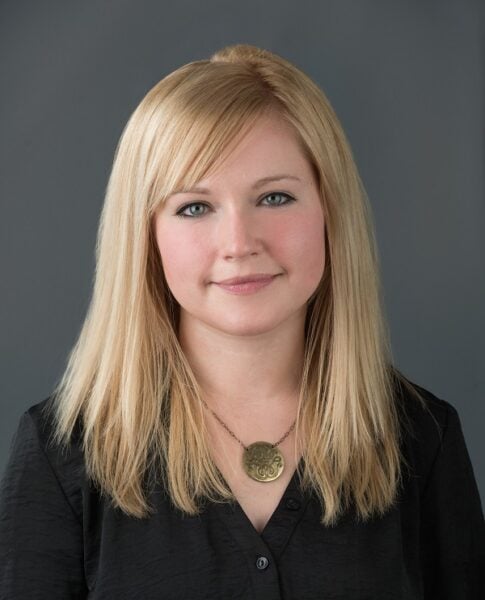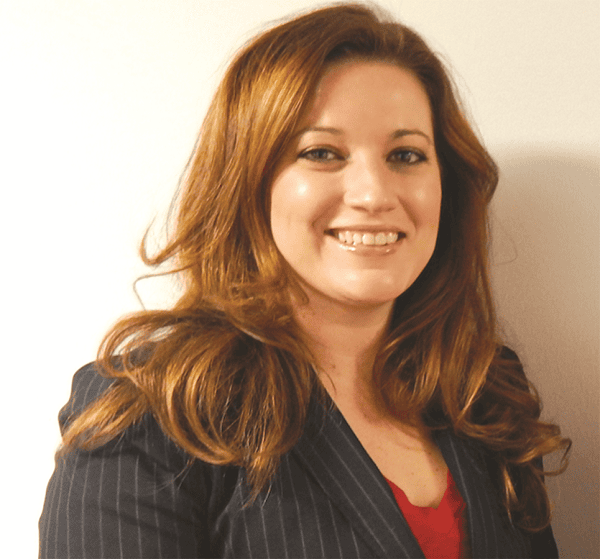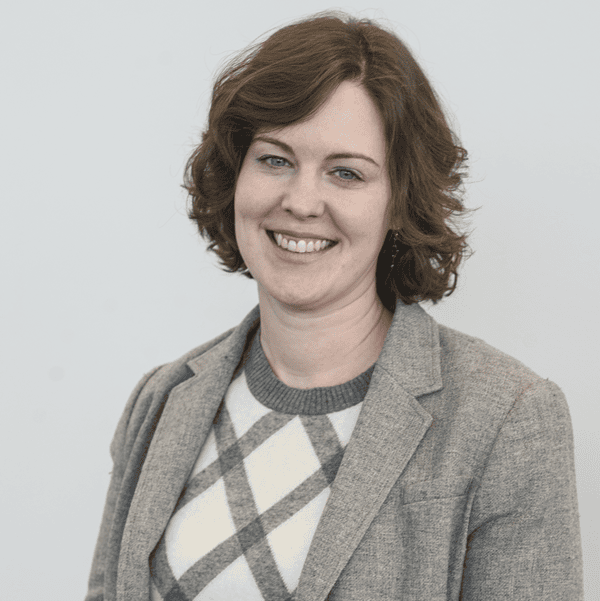The AHA’s Career Diversity for Historians initiative is working to better prepare graduate students and early-career historians for a range of career options, within and beyond the academy. In addition to national-level programs, notably AHA Career Contacts and programs at our annual meeting, four pilot sites are working to explore the culture and practice of graduate education and how it can better support the changing needs of PhD students. Lindsey Martin earned her PhD in 2015 from Stanford University and was recently hired to coordinate Making History Work, the Career Diversity project at the University of Chicago. Jennifer McPherson, a PhD candidate in history at the University of New Mexico, is the new graduate project assistant for the Career Diversity initiative at UNM. I recently had the opportunity to ask them a few questions about their new positions.
Emily Swafford: What attracted you to the Career Diversity initiative?

Lindsey Martin, Mellon career development officer at the University of Chicago. Credit: Tricia Koning.
Lindsey Martin: I wanted the chance to make a meaningful contribution to our discipline by addressing the challenges history PhDs face in today’s job market. I welcome the opportunity to apply the skills I gained as a graduate student in new ways while still working closely with historians in an academic setting.
Jennifer McPherson: I said yes to Career Diversity because we have an opportunity to change the game, to write new rules for historical training, and to redefine the importance of history to our community partners. At UNM, I hope to broaden the career possibilities for my cohort by providing them with better insight into how professional development and the history PhD can support a diverse range of career options.
ES: How has your experience as a PhD student and as a historian informed your approach to Career Diversity?
LM: Not too long ago, I was a graduate student navigating a difficult job market, so I know the challenges students face as they work to finish a dissertation and explore career options. This gives me a sense of urgency and purpose, and I want to help students succeed in finding fulfilling careers both within and beyond the academy.

Jennifer McPherson, graduate project assistant at the University of New Mexico. Credit: Barbara Wafer.
JM: Professional training and intellectual development have always been intertwined for me. During my undergraduate work, I volunteered for a women’s resource center and worked as a hall director in the office of student affairs. A whole host of activities that I consider part of my training as a historian have been affected by these previous experiences: my choice of dissertation topic, my participation in our department, and my work for the New Mexico Historical Review and the Center for the Southwest.
ES: What are your main goals for the next year?
LM: Making History Work aims to build opportunities for professionalization and skill building into the different stages of graduate study. We are creating workshops for first-year students to help them acquire the skills necessary to thrive as historians in the 21st century; we encourage them to think of themselves as professionals embarking on a career path they can shape according to their evolving interests. Other events will help students recognize how their skills can be used in various contexts, such as writing for nonacademic audiences or undertaking an internship related to their field of research.
JM: In cooperation with UNM faculty, staff, and alumni, we are implementing a professional-development series to help students hone their communication skills, gain insight into the academic and nonacademic job markets, and learn professional practices through observation and application. Last year, we also saw success in placing a handful of students in short-term, local public history internships; this year, we are expanding the program to include “nontraditional” organizations.
ES: What challenges do you anticipate?
LM: Shifting the culture of graduate programs to accommodate the diverse experiences and goals of graduate students will be difficult. The overwhelming majority of students enroll in a PhD program with the single goal of landing a tenure-track job after graduation. I have no intention of dissuading students from this path, but I hope to help them understand it is not a problem if their career goals shift during their time in the program.
JM: The challenge at UNM is to continue to build on what we have already developed and achieved, and to respond to student and faculty feedback. The new workshop series is a product of graduate and faculty requests for more tailored career-development sessions. Also, our students want to control their career trajectory and have more opportunities to think broadly about history’s reach and impact. The challenge for us is to meet and rise above these expectations while encouraging students to continue to think broadly about the skills they are acquiring.
ES: Some graduate students express concern that considering careers beyond the professoriate will distract them from their graduate work or lead faculty to question their commitment to scholarship. How would you address those fears?
LM: Historical training teaches us to constantly seek new insights and perspectives on the past: everything has a history. I would like to foster an environment at UChicago that applies that same approach to the present. Graduate students should be encouraged to be curious and engaged in the world around them and to not feel anxious if that engagement inspires them to apply their skills and expertise to careers beyond the tenure track.
JM: Luckily, I was never told nor ever thought that my scholarship would be hindered, but I have heard some of these concerns from my colleagues. What I would say to them is this: it is your life, and you are the only one who can determine what your professional life as a historian should look like. Career Diversity, with faculty and university support, simply provides you with tools that can better prepare you for a postgrad career of your choosing.
This work is licensed under a Creative Commons Attribution-NonCommercial-NoDerivatives 4.0 International License. Attribution must provide author name, article title, Perspectives on History, date of publication, and a link to this page. This license applies only to the article, not to text or images used here by permission.



